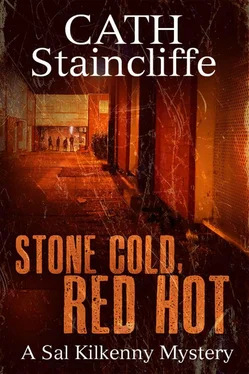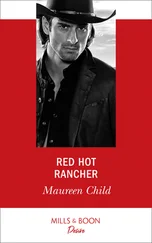“Do the Brennans and the Whittakers know?”
“Not sure, they may have their suspicions. However Mr Poole’s got a great deal of respect in the area, used to run the local Tenants group until a couple of years ago. If they go up against him there’ll be a lot of antagonism from other neighbours. He’s not such an easy target.”
I thought about the role Mandy wanted me to play. “I might be coming and going quite a bit and at odd times if I’m on call. I’ll need some cover to allow for that.”
The pair of us began to invent possibilities,
“District nurse?”
I shook my head. “Too risky, people might know who the nurses are and he’d have to play sick as well. If I was a relative why would I be at Mr Poole’s? Job interviews?”
“Training course?”
“They usually do accommodation. What about clearing my mother’s house out? Recent bereavement.”
“Why not stay there?”
“Sick aunt in hospital?”
“You could stay at her place,” she objected.
“No, she lives in a nursing home, but she’s gone into hospital for an operation or tests. She’s my mother’s sister, I’m the closest living relative – I can’t afford a B &B.”
There was a pause while we both considered any major flaws in this scenario. It sounded general enough to be plausible and I wouldn’t have to wear a uniform or gen up on any particular skills or knowledge. I would adopt some basic disguise though. Hulme was only a couple of miles north of my home in Withington and it was possible that in the future I’d run into someone who knew me from Mr Poole’s, or somebody who knew me would turn up unexpectedly in Hulme and blow my cover. It would be safer to preserve a different identity.
“That’ll do,” I said, “Mr Poole can be a relative on the other side of the family and I’m up from London.”
Mandy gave me Mr Poole’s address and phone number and pulled out a portable camcorder, tapes and spare battery from her drawer. It was a very compact model – ideal for spying. She took it out of the case and showed me the basics. She assured me it would record even in poor lighting unlike most models. I felt a little thrill at the prospect of doing the job.
“The most effective evidence,” she said, “is obviously where we can see who is doing what. Remember to always keep the date and timer on and, if you can, start with a general shot to establish the scene then use the zoom to pick out the faces of those present.”
“Just like they do in the movies,” I joked.
“If there’s any violence or the threat of any violence, ring the police immediately.” She packed away the equipment. “And keep me informed, it’s a nasty case and I’d like to see it resolved as soon as possible.”
I felt a mixture of excitement and apprehension about the task I’d been set but I had no premonition of how devastating it was going to be.
I made my way through town to a photocopy shop. They were still re-building the centre, three years after an IRA bomb had gutted the city. Boards sectioned off parts of Cross Street as construction continued on the new Marks and Spencer building. Traffic to and from Victoria Station had to go round by the Cathedral or up Shude Hill. I had three copies done of the photo of Jennifer Pickering and then I walked up to Piccadilly to catch the bus back.
There was more work going on around Piccadilly Gardens. Manchester was in a constant process of change. The flourishing music business and club culture had brought confidence and development to the area. The city was a major tourist destination now. I was standing within spitting distance of Chinatown with its magnificent Chinese arch and plethora of restaurants, of the thriving gay village, host to the largest gay Mardi Gras in Europe, of the huge Greater Manchester Exhibition Centre and the Bridgewater Hall home to the Halle orchestra. A short ride on the Metro Link would get me to Old Trafford cricket ground or Manchester United football club. Not that I’d ever been.
I spent the afternoon in the office, writing up notes and planning how I would use my time over the next few days. Roger Pickering had dropped off his letter for the powers that be at Keele and I wrote one of my own to go with it, outlining again that I wanted to have any forwarding address for Jennifer Pickering believed to have left her course in the autumn term 1976. If they didn’t have a record of that I asked whether they could give me details of Jennifer’s Halls of Residence address while she was at Keele? And could they provide any contact details for students there at the same time who might be able to assist me? I thought the latter was a long shot really and my hopes were resting on them coming up with the address that Jennifer had moved to. Then I’d take it from there.
After a top-up of caffeine I rang and introduced myself to Mr Poole, thanked him for his offer, and asked if I could come to his house that Friday evening to start my surveillance.
“I’ll pretend to be a distant relative,” I said, “my aunt’s in Wythenshawe hospital having tests and I’m visiting from London.”
“If anyone asks,” he said, “I’ll tell them you’re one of Joan’s children. My son Malcolm remarried and moved down south. Joan already had three children from her first marriage. You’d be a step-grand daughter, I reckon. You’d not be expected to know much about this side of the family.”
“That sounds great, and we needn’t have met before. I’ll use my own first name – Sal, Sal Smith will do.”
Mr Poole cleared his throat. “What exactly will it involve? You being here.”
“I’ll have a camcorder, a video, to record anything that goes off. I’ll keep it running whenever there’s any activity outside the Ibrahim’s, so most of the time I’ll be perched in the window filming or watching for something to happen. I hope to leave in the early hours when Mr Ibrahim is back from work. And if anything happens before then will you ring me on this number – have you got a pen?”
I gave him my number and the one for my mobile and said I’d see him Friday. He seemed to be taking the whole set-up in his stride and I was looking forward to meeting him, impressed at how he was prepared to get involved and resist the threat of violence that came with the territory.
I managed half an hour on Ray’s computer searching for an e-mail address for Jennifer Pickering, J. Pickering, Jenny Pickering and J. L. Pickering.
I found three matches in all, two in the United Kingdom and one in Hawaii. I sent messages to all of them asking them to reply and confirm whether they were Jennifer Lesley Pickering formerly of Manchester, U.K. and giving her birthdate. I also left instructions for two search engines to carry on searching and give me the results later.
Of the UK matches there was an J. Pickering in London but that could have been a John or a Julie, and a Jennifer Pickering in Scarborough. This last one seemed to be the most likely – she’d given her full name but not bothered with her middle name. I tried not to get too excited about it but my imagination kept running scenes where I checked my e-mail and found a great big “Yes, that’s me!” message waiting for me. Oh, if only…
Chester is about thirty five miles south west of Manchester towards North Wales. I allowed myself three quarters of an hour to get there which was about right. When Maddie and I have holidays we often go camping in Wales, so the journey reminded me of setting off, desperately trying to remember exactly what I had forgotten to pack.
I played an old Gypsy Kings tape, yelling along to the rousing tunes and crooning to the lovesick ballads. It was a mild night and dark by the time I left the motorway and followed Lisa’s directions. I only took one wrong turning and arrived outside her bungalow at five to eight. The windows were aglow and there was a car in the drive. The estate was open plan, no walls or hedges in the front gardens. Easier to see what the neighbours were up to. I wondered what effect it had on people’s interaction. Did it increase a sense of community, everyone looking out for everyone else or did people draw away from each other, bothered by the lack of privacy?
Читать дальше












